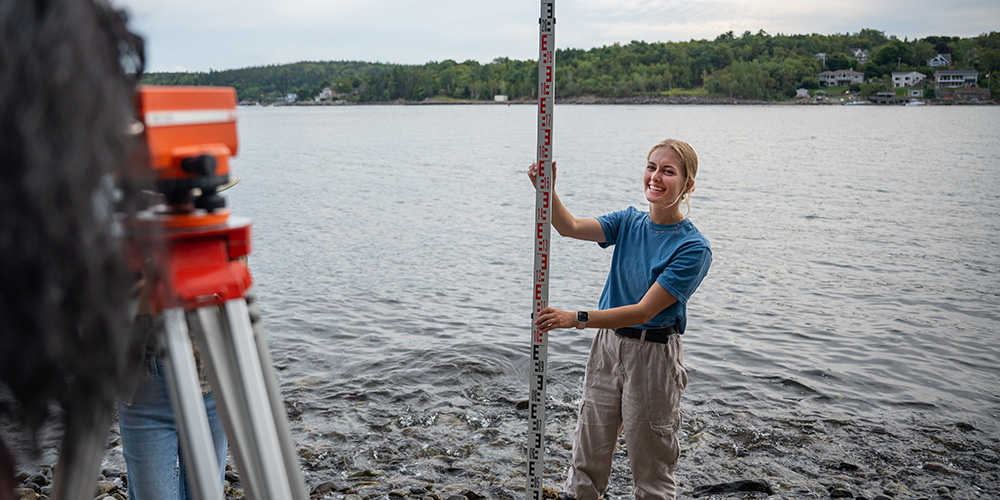Environmental Science Program

Why study Environmental Science?
The Department of Environmental Science at Saint Mary's University offers a rigorous undergraduate environmental science program that uses an interdisciplinary approach to learning. Our goal is to provide students with the academic preparation to contribute positively to an environmentally sound future.
Environmental science uses scientific ideas and methods to help shape and conserve our environment’s future. It blends the science behind environmental systems with the theory needed to manage and protect them.
The Saint Mary’s approach
Science coursework can cover a range of subjects, like environmental science, biology, chemistry, geology, and geography, combined with environmental policy, management, and monitoring approaches. You will have the flexibility to take elective courses from almost any university department, including economics, sociology, political science, business, and global development studies.
Tailor your undergraduate Science degree to your interests. We offer a Major, Honours and Minor in Environmental Science. If you’re majoring in Arts or Commerce, you may also do a Minor in Environmental Science.
An ideal setting
Saint Mary’s is an ideal setting to study environmental topics, with access to marine and terrestrial environments close by, including The Oaks Forest Living Laboratory. Professors are linked to unique knowledge-sharing centres like Coastal CURA and the Atlantic Centre for Green Chemistry. Saint Mary’s is also home to facilities like the Green Roof Testing Facility and the Centre for Environmental Analysis and Remediation.
Sample courses offered:
- The Environment and Human Health: A range of natural and anthropogenic agents that result in human health problems in industrialized and developing countries are examined. Students explore the scientific causes, the potential health effects and any known synergistic effects of these agents through case studies, readings, and discussion. Existing policies are evaluated. Students research, critique, and present at least three comprehensive case studies.
- Environmental Contaminants: The focus of this course is on key environmental contaminants, including mercury, other metals, and selected volatile organic compounds. Emphasis is placed on experiential approaches, including field work and laboratory research, to study these environmental contaminants. Students are expected to participate in the critical analyses of literature, and in the discussion and presentation of their own research results.
- Green Chemistry: Green chemistry, or environmentally benign chemistry, is the design of chemical products and processes that reduce or eliminate the use and generation of hazardous substances. Students examine the chemical principles and processes in the development of technology and in the effects that this technology has on the environment. Traditional approaches are avoided that only consider the treatment of pollution after it is created, and will focus on alternative routes that limit the production of waste.
- Natural Resource Management: This interdisciplinary course is an examination of the management of natural resource industries such as fisheries, forestry, mining and energy, focusing on interactions between biophysical, ecological, socioeconomic, and technological components. Topics include: sustainable development and environment-economy interactions in the resource sector; approaches to integrated natural resource development; theoretical and practical aspects of managing resources and resource industries; economics of sustainable resource use; methods for analysing the impacts of resource use.
Future career opportunities:
- Fishery, forestry or mining analyst
- Conservation scientist
- Environmental consultant
- Policy analyst
- Remediation specialist

The Environmental Science program is very hands-on and with the smaller class sizes, you get to know everyone in your class along with your professors. Some of the professors are environmental professionals who teach part-time. This enables the students to learn about what it is like to work in the “real world” on real environmental projects.